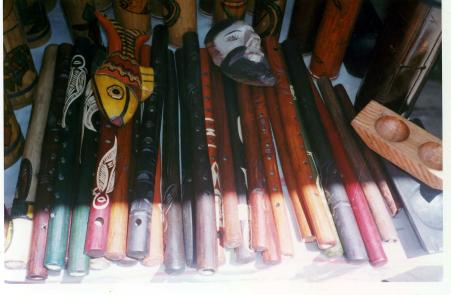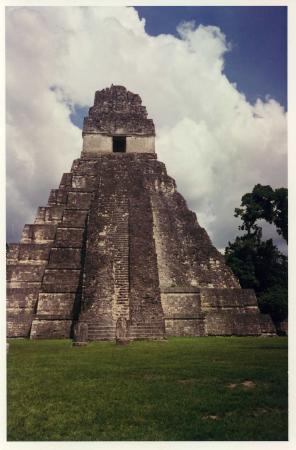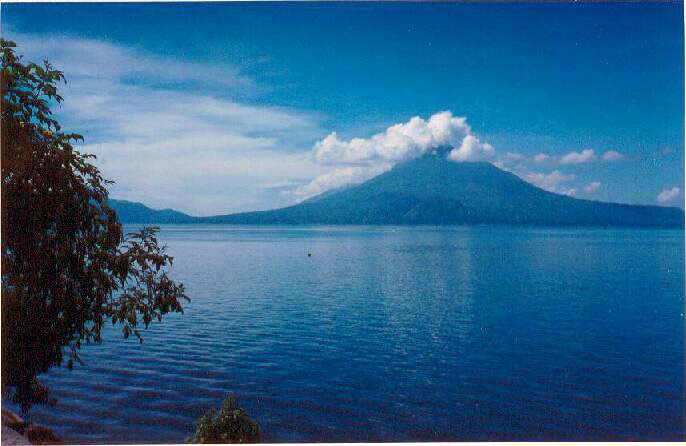
The second best thing about Chichicastenango is its name, a long, Mayan
utterance whose suffix alone reveals its disassociation with the Castilians.
Thus is Central America, where the previous world bequeathed its greatest
gifts in the form of language. In El Salvador, it's the proliference of
Petls and Peques in the place names that reveal the presence of a people before
the Spanish, and in Nicaragua it's
the Galpas and Tepes that evoke Mezoamerica's children (in the latter case, the
Nahuatls, whose influence on language extends to hundreds of words in use
today): in Guatemala it's the Nangos that proliferate in place names like this
one.
Continue reading "Chichicastenango"

Whenever I hear about 9/11, I
will hear, from the background of my memory, the sound
of monkeys. Ericka and I had arrived a day earlier on a little, twin-prop airplane that
had carried a dozen of us north from Guatemala City over the verdant canopy
of Central American jungle to Tikal in Guatemala's northern province, and
back in time five centuries to a Mezoamerica the jungle swallowed whole. We
entered the ruins at daybreak under the silhouettes of monkeys in the
treetops above us, climbed temples to look out over the jungle canopy,
wondered quietly about the lifestyle of a people whose world ended before
ours began and whether that world made any more sense or was in any way more
satisfying than this one...
Continue reading "The Mayan Ruins of Tikal"

Stunning Lake Atitlán is ringed by volcanoes in the highlands of western Guatemala.
A strongly Mayan region, Atitlán is populated with quiet towns of farmers and artisans which, except for the new tourist trade, live much the way they did five hundred years ago.
Continue reading "Lago Atitlán"


